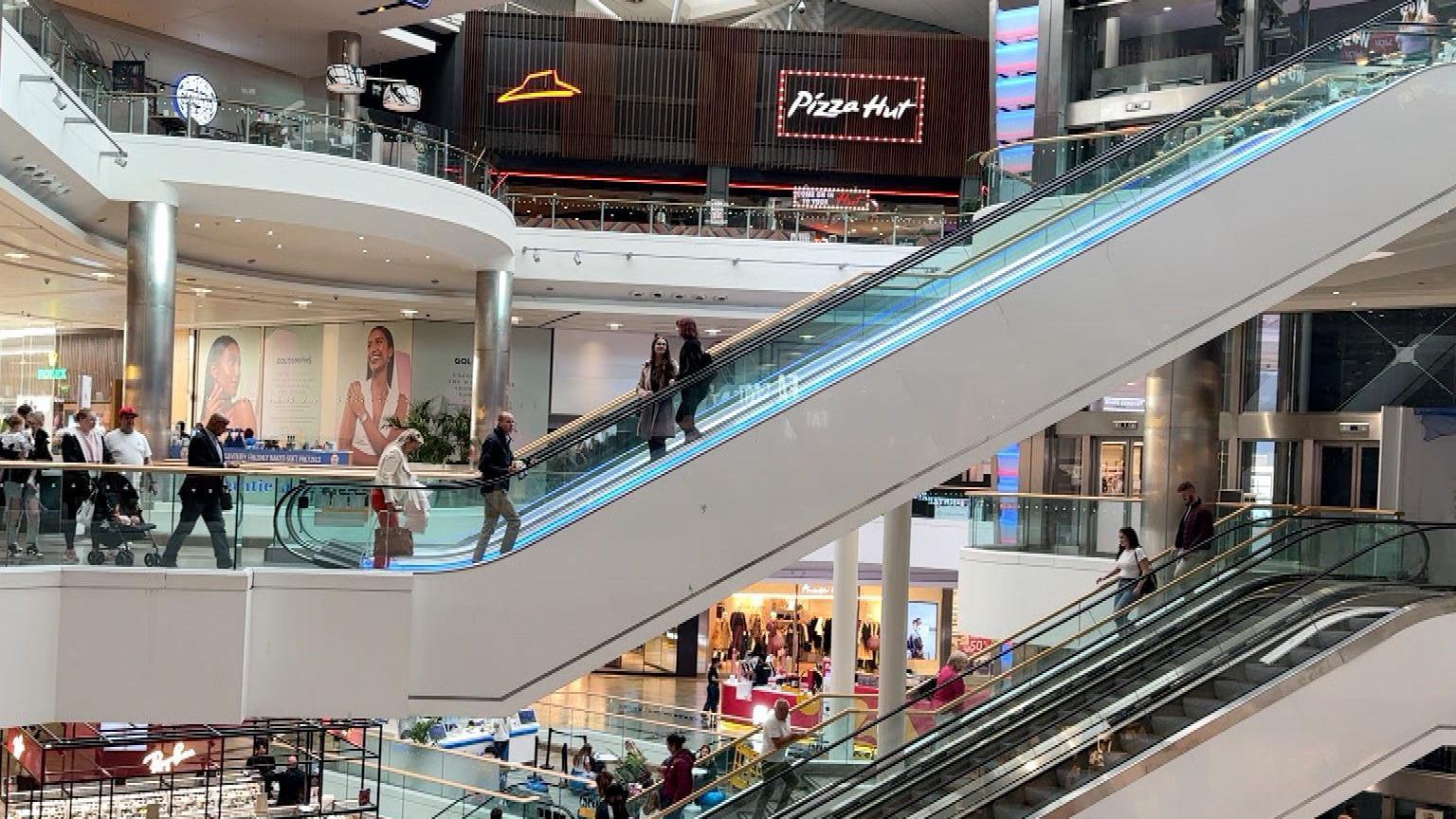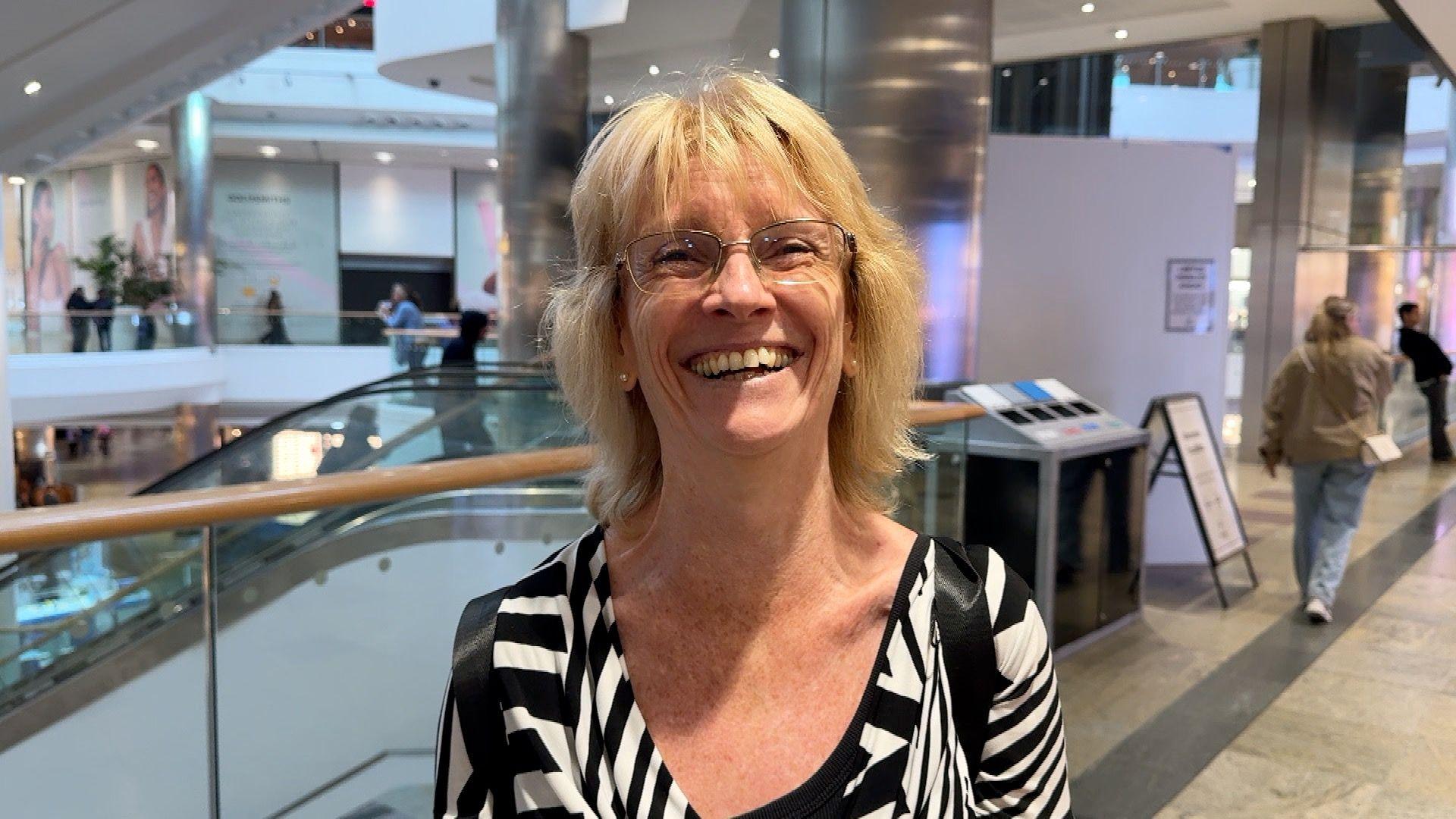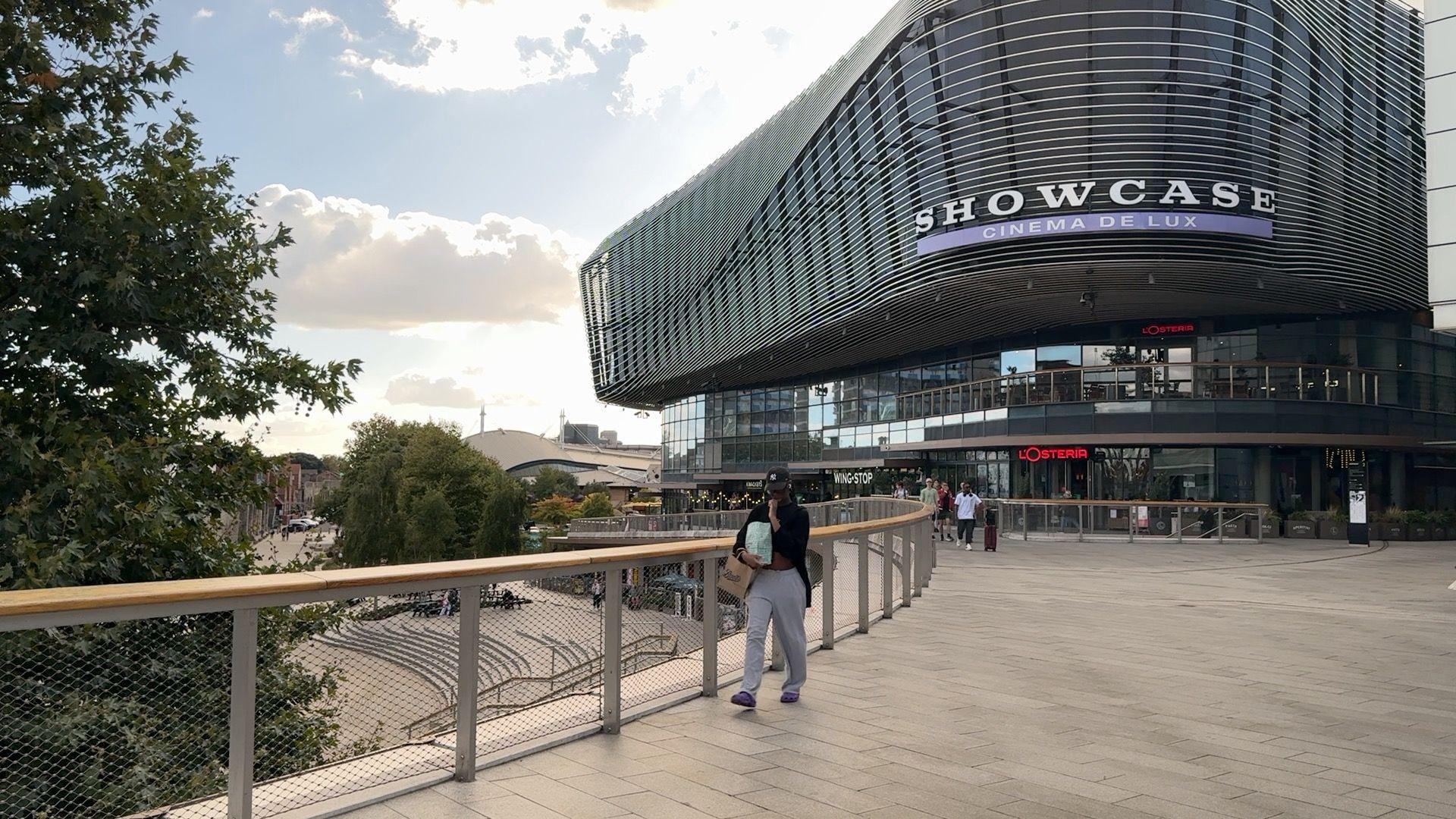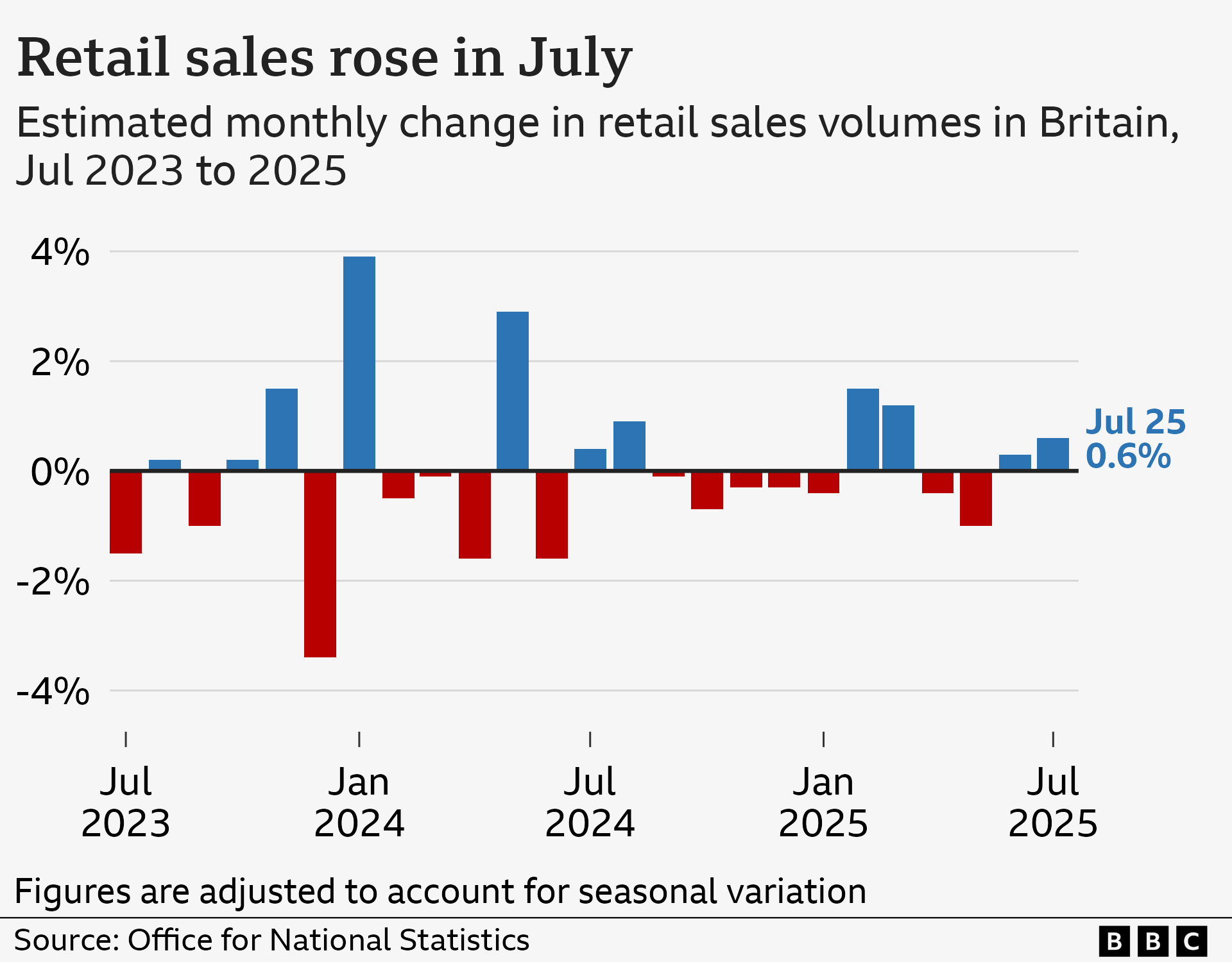Consumer habits changing city's flagship mall after 25 years

Westquay is one of the most popular shopping destinations on the south coast of England
- Published
It has been 25 years since the opening of one of the south of England's biggest shopping centres.
When it opened in 2000, Westquay Shopping Centre in Southampton was described as the largest city centre shopping mall in Europe.
More than 100,000 people flocked to have a browse, with a reported more than £1m passing through the tills on opening day.
But following the rise of online shopping, experts have warned that shopping centres like Westquay must evolve if they want to survive.

Demolition of the old Pirelli factory began in 1997 to make way for the mall
After more than a decade of setbacks and problems agreeing a location, demolition of the old Pirelli site in Southampton began in 1997 to make way for the new mall.
Developers bought the Daily Echo building - and demolished that too - providing a link between Portland Terrace and Above Bar Street in the Hampshire city to create Westquay.
Three years of construction and £295m later, the centre had its grand opening on 28 September 2000.
Westquay's director Andy Jackson said people came and experienced retail "probably in a sense that they'd never experienced ever".
"It went from being a high street shopping experience into all, of a sudden, you're in a complex," he said.

Alison Rose says she and her sister love the complex
According to the local council, the centre attracts an annual footfall of over 19 million, whether that be for its shopping, dining or leisure facilities.
In 2025, it is still popular with local residents.
Alison Rose says she and her sister love visiting the centre together: "I like variety and that it's not just places to eat."
Another shopper Mohammed told the BBC he likes going to Westquay for shoes and clothes but buys most other things online.
And student Mariella said she does not shop online because she prefers to make her purchases in-store.
"When I do come, I like to go around the shops and have a mooch in all of them," she said.
But what about the next 25 years?

The Westquay South development opened in 2017
In 2017 the Westquay South development added a large "leisure hub" to the centre, including a Showcase cinema.
Mr Jackson said: "It's no longer acceptable for shopping centres to be just a place to shop and a place to eat, you've got to spread."
Nationwide retail sales volumes rose by 0.6% in July, according to the Office for National Statistics, which was more than analysts had been expecting.
However, other economists have warned that boosts from the weather and football this summer were both factors that "won't be repeated".
Paul Dales from Capital Economics said talk of tax rises ahead of November's Budget could also hold back the sector.

Tom Holder from the British Retail Consortium said changing consumer habits means shopping centres need to find ways to adapt.
"People are choosing not just to buy in-store, they're buying online too.
"The majority of stuff is still bought in stores at the moment, that's an important fact but, rather than seeing online as competition, they've got to work alongside.
"That means making sure that full offering that retailers can give, where they provide a reason to still go to shops."
Mr Jackson said part of the centre's mission to evolve was to introduce more medical retailers and competitive socialising experiences.
"To me, this is about giving people more - better, bigger, different and something you can't get anywhere else in the region."
Get in touch
Do you have a story BBC Hampshire & Isle of Wight should cover?
You can follow BBC Hampshire & Isle of Wight on Facebook, external, X (Twitter), external, or Instagram, external.
- Published5 September
